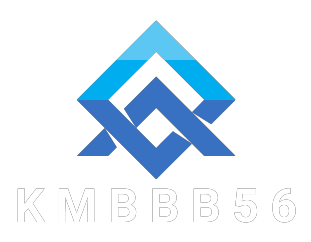In the domain of online trading, the choice of platform can substantially impact a trader’s success. Among the multitude of alternatives available, MT4 has risen as a top choice for both beginner and seasoned traders. Its intuitive interface, comprehensive features, and powerful analytical tools make it a favorite in the trading community. But how does it stack up against different platforms?
As we examine this thorough comparison, we will investigate the distinct strengths of MT5 while also showcasing the features and functionalities of alternative trading platforms. Understanding these differences is crucial for traders wanting to choose the platform that corresponds most closely with their trading strategies and goals.
Overview of the MetaTrader platform
MetaTrader is a well-known trading platform that has become a staple in the online trading world. It is designed to enable trading in various financial markets, including foreign exchange, commodities, and market indices. The platform is known for its easy-to-use interface, advanced charting capabilities, and robust analytical tools, making it suitable for both beginner and professional traders. MetaTrader comes in a couple of main versions: MetaTrader 4 and MetaTrader 5, each offering special features that cater to different trading requirements.
One of the key features of this platform is its support for robotic trading through Expert Advisors, which allow users to create, test, and implement trading algorithms. This capability enables traders to execute trades automatically based on predetermined criteria, thus minimizing emotional decision-making. The extensive community surrounding this platform also contributes to its popularity, as traders can share and buy trading strategies, indicators, and other tools to enhance their trading experience.
MetaTrader also emphasizes adaptability and versatility, as it is available on multiple devices, including desktop, web, and smartphone platforms. This ensures that traders can access their accounts and execute trades at any moment and from any location. With frequent updates and improvements, MetaTrader continues to evolve, maintaining its position as a preferred choice for traders across the globe.
Comparative Characteristics
The MetaTrader platform is distinguished among trading platforms due to its accessible UI paired with extensive functionality. It serves both new and experienced traders, delivering a selection of tailorable features that improve the trading process. Users enjoy the easy-to-use navigation, which enables traders to readily access charts, signals, and market news, thereby making it easier to carry out transactions effectively.
A significant feature of MetaTrader is its enhanced charting capabilities. Traders can examine various assets using various types of charts and timeframes. The platform offers a variety of technical indicators and drawing tools, allowing users to conduct in-depth financial analysis. This degree of flexibility is something that numerous other platforms find challenging to replicate, providing MetaTrader edge in technical trading.
Furthermore, MetaTrader’s support with automated trading, also known as EAs, revolutionizes the trading approach for a lot of users. This feature permits traders to define particular trading strategies to perform trades without manual intervention based on set conditions. Compared to other platforms, that might cap automation, MetaTrader software provides a strong environment for automated trading, enabling users to optimize their strategies and likely increase profitability.
Pros and Cons of Each Trading Platform
The MetaTrader platform offers a solid trading experience with a wide range of features that support both beginner and proficient traders. Its easy-to-navigate interface simplifies the process of evaluating markets and performing trades. In addition, it allows for automated trading through trading bots, enabling traders to execute strategies without constant manual intervention. On the flip side, beginners may find the extensive options daunting, and personalization can require a time investment.
On the other hand, many alternative trading platforms focus on specific market niches or provide simplified interfaces. Some platforms prioritize social trading or trade mirroring, allowing users to replicate the strategies of proficient traders. highest currency in the world This can be beneficial for those who prefer a communal approach to trading without dedicating as much time to analysis of the market. Yet, these platforms may lack the depth of tools available in MetaTrader, which can limit advanced traders looking for sophisticated analysis and execution features.
To sum up, choosing between the MetaTrader platform and other trading platforms ultimately depends on personal trading preferences and levels of skill. The MetaTrader platform is ideal for traders who seek versatility and a robust toolset, while alternative platforms may appeal to those favoring simplicity or social trading. It is essential for traders to assess their own requirements and trading styles when deciding which platform to use.
